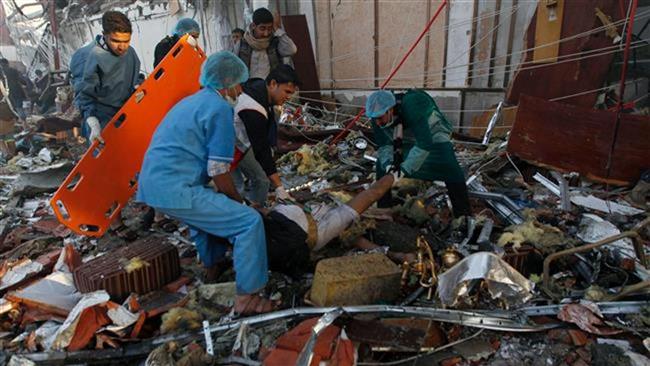
RNA - Ted Lieu made the warning in a letter to US Secretary of State John Kerry and Defense Secretary Ashton Carter, saying the US government’s denial of target selection for Saudi airstrikes in Yemen does not excuse Washington from legal responsibilities.
“I find it deeply troubling that the US apparently has no advanced knowledge of what targets will be struck by jets that are refueled by US personnel with US tankers,” Lieu said in his letter.
“The US would appear to be violating LOAC [laws of armed conflict] and international standards by engaging in such direct military operations if US personnel are not aware if targets are civilian or military, if the loss of life and property are disproportional, or if the operation is even militarily necessary,” he noted.
ointing to the 18-month involvement of the US in Saudi war on the Yemeni people, the Democratic congressman stressed that Washington had knowledge of a bombardment campaign hitting civilian targets, including schools and hospitals, multiple times.
“US personnel are now at legal risk of being investigated and potentially prosecuted for committing war crimes. Under international law, a person can be found guilty of aiding and abetting war crimes. Under US law, a person can be found guilty for conspiring to commit war crimes,” Lieu wrote.
The Pentagon has been providing logistic and surveillance support to Saudi Arabia in its military aggression against Yemen, the kingdom’s impoverished southern neighbor, which has killed more than 10,000 Yemenis since its onset in March 2015.
The unprovoked war started by a coalition of Saudi-allies in an attempt to undermine the Houthi Ansarullah movement and reinstate former Yemeni President Abd Rabbuh Mansur Hadi, a staunch ally of the Riyadh regime.
Washington has on several occasions criticized the Saudi regime for its crimes against humanity in Yemen, but has shown no sign of ending its support for Riyadh.
In August, the US State Department approved the sale of more than 130 Abrams tanks, 20 armored recovery vehicles and other equipment worth about $1.15 billion to Saudi Arabia.
Saudi-led bombardments have struck hospitals, markets and other places where civilians gather.
In September, Amnesty International reported that a US manufactured bomb had been used in a Saudi strike against a Doctors Without Borders hospital in Yemen’s northwestern province of Hajjah which claimed the lives of 19 people.
In October, more than 140 people lost their lives and over 525 others sustained injuries after Saudi military aircraft struck a hall in the Yemeni capital of Sana'a, where rows of people were attending a funeral.
UN Humanitarian Coordinator for Yemen Jamie McGoldrick said last month that the death toll from the Saudi military aggression could rise even further as some areas had no medical facilities, and that people were often buried without any official record being made.
847/940